Alabama’s roads, bridges receive $7 million for much needed repairs

Governor Kay Ivey and the Alabama Department of Transportation (ALDOT) on Thursday announced $7 million in funding is being awarded to cities and counties across the state for various local road and bridge projects. Made available through the Annual Grant Program, a new program created under the Rebuild Alabama Act that established the gas tax, the funding will support 31 projects. “An investment in our roads and bridges is an investment in the future of Alabama. These $7 million in funds will go a long way in helping communities across the state address various road and bridge projects,” Ivey said. “I am proud to see the continuing positive ramifications from the Rebuild Alabama Act. Soon, every Alabama citizen will feel the benefits from this additional investment in our infrastructure.” $7 million in awards is part of a larger $10 million that has been set aside under the Rebuild Alabama Act for local road and bridge projects this year. A second award cycle is expected later this year to award the remaining $3 million
Time to Cut the Red Tape and Modernize U.S. Infrastructure

Energy Institute of Alabama Chairman Seth Hammett points out the need for reform in a key area.
Lt. Governor Will Ainsworth’s appointments: Infrastructure/IT related (January 2019 – July 2019)

Below you will find Lt. Governor Will Ainsworth’s infrastructure and information related appointments from January to July, 2019. Joint Transportation Legislative Committee (Made February 20) · Senator Gerald Allen · Senator Arthur Orr · Senator Clay Scofield · Senator Tom Whatley · Senator Cam Ward · Senator Vivian Figures · Senator Donnie Chesteen Joint Transportation Legislative Committee · Senator Jabo Waggoner (Made March 12) · Senator Tom Butler (Made March 12) · Senator Clyde Chambliss (Made March 12) · Senator David Sessions (Made March 12) · Senator Bobby Singleton (Made March 12) · Senator Rodger Smitherman (Made June 19) Home Builders Licensure Board · Randy Cunningham (Made March 18) · Don Spurlin (Made April 18) Manufactured Housing Committee Advisory Board (Made April 24) · Senator Clay Schofield Alabama Commission on Artificial Intelligence and Associated Technologies · Nathanael Jones (Made May 29) · Dr. Vicki Karolewics (Made June 05) Alabama Construction Recruitment Institute (Made June 13) · Donald Stanley
Steve Flowers: Governor and Legislature successfully pass infrastructure program. Timing is good.
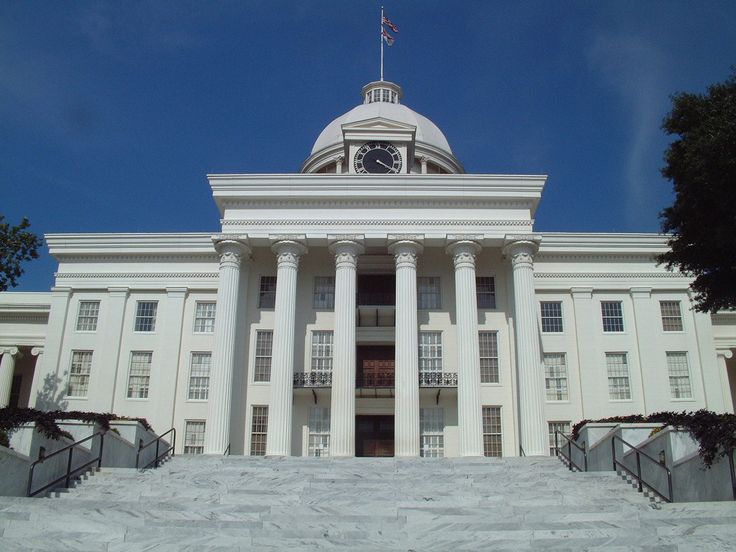
Gov. Kay Ivey made infrastructure improvement in the state her cornerstone issue for this year, and more importantly for her term as governor. Within less than three months in office she and the Legislature have successfully accomplished this mission. Last Friday the Alabama House of Representatives overwhelmingly passed monumental legislation on an 84-20 vote. It was a remarkable victory for the Governor and the House leadership. It was a bipartisan coalition of support. Only 18 of the 77 Republicans voted against the bills and only 2 of the 28 Democrats voted no. It is expected to pass in the Senate this week. The leaders in the House were the sponsor, Rep. Bill Poole (R-Tuscaloosa), Speaker Mac McCutchen (R-Madison), Rep. Steve Clouse (R-Ozark), and Rep. Anthony Daniels (D-Huntsville). The Senate leaders are Sen. Clyde Chambliss (R-Prattville), who is the Senate leader-sponsor, Sen. Del Marsh (R-Anniston), Sen. Jabo Waggoner (R-Vestavia), Sen. Bobby Singleton (D-Greensboro), and Sen. Greg Reed (R-Jasper). These legislative leaders, along with Gov. Kay Ivey, threw down the gauntlet and clearly dug in to make this Infrastructure Initiative their number one priority. These leaders recognized the need to improve our roads and bridges and the long-term economic expansion of our state. They are truly thinking about the next generation, not the next election. Huntsville is projected to grow faster than any city in America over the next decade. The job growth will continue to be in high paying, high tech jobs. The new Toyota-Mazda plant there will be the largest in the world. They were promised roads and highways as part of their incentive to locate in North Alabama. Our port city, Mobile, could be as large as Houston, Texas but our Mobile docks are outdated and need widening and deepening, as well as proper facilities built to handle large vessels and transport barges. It is geographically better located than Houston or New Orleans. If the port was deepened and widened, it could accommodate exponentially more cargo ships. Currently it is too small and shallow for the Mercedes vehicles manufactured in Tuscaloosa to be shipped out of our Alabama port. The primary reason that the Legislature needs to act now is because there is more than likely a federal infrastructure program on the horizon. If we are to participate in garnering federal funds, we undoubtedly will have to have state revenues to match and draw down the federal funds. Twenty-eight states have already raised their fuel tax to match the anticipated federal money. Let me tell you a little secret, ain’t any of those 28 states going to get to the federal trough ahead of us. None of them have the Chairman of the United States Senate Appropriations Committee. Our Senior Senator, Richard Shelby, chairs the Appropriations Committee. He writes the federal budget. Therefore, he controls the United States federal checkbook. If we become the 29th state to get the ability to match federal funds, we don’t become the 29th state in line. We move to number one on the list. Alabama has a treasure in Richard Shelby. He has not only been the longest serving U.S. Senator in Alabama history, he is also the most powerful U.S. Senator in Alabama history. His prowess and adroitness at bringing home the bacon to Alabama is legendary. In my book, Six Decades of Colorful Alabama Political Stories, I have a Chapter entitled “Alabama’s Three Greatest U.S. Senators.” My suggestion was that U.S. Senators Lister Hill, John Sparkman, and Richard Shelby have been Alabama’s greatest. However, if I was writing that Chapter today, Shelby would be in a league of his own as the most powerful Senator in Alabama history. Senators Hill and Sparkman were powerful and left a legacy, Hill in medical research and rural hospitals throughout the nation and Alabama. Sparkman was the Father of the Redstone Arsenal in Huntsville and delivered hallmark legislation that afforded housing for Americans as Chairman of the Banking Committee. Senator Shelby over his 32 plus years in the Senate has chaired the U.S. Senate Banking Committee, Intelligence Committee and Rules Committee. However, his current perch as Chairman of the Appropriations Committee is unparalleled. Alabama has never had a Chairman of the United States Senate Appropriations Committee and more than likely never will again. See you next week. Steve Flowers is Alabama’s leading political columnist. His weekly column appears in over 60 Alabama newspapers. He served 16 years in the state legislature. Steve may be reached at www.steveflowers.us.
J. Pepper Bryars: Why we should avoid an immediate special session for the gas tax
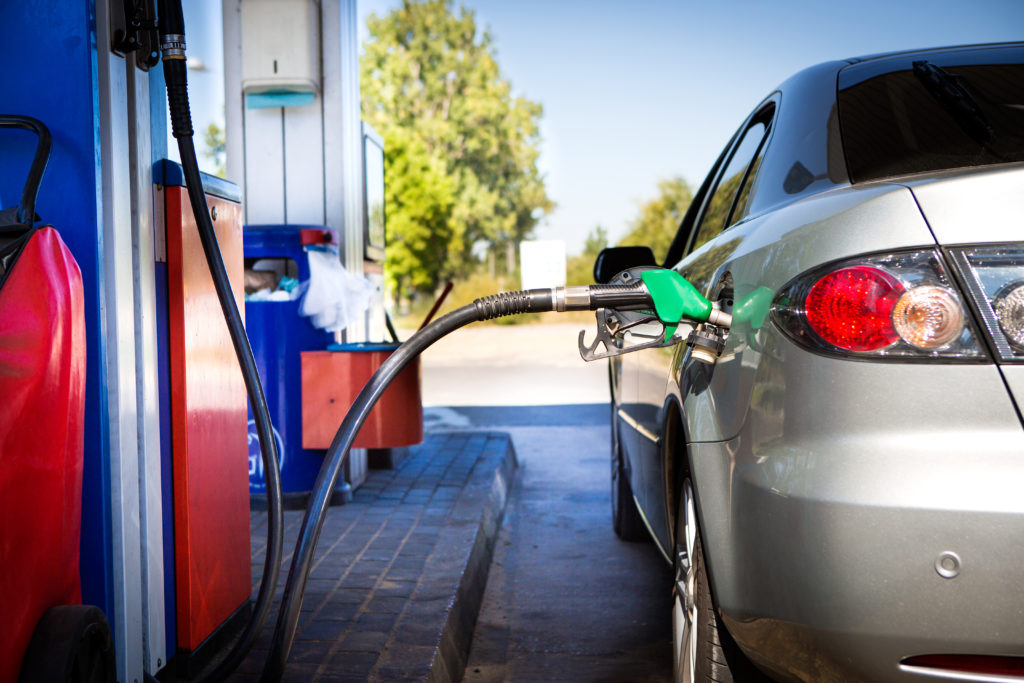
Many Alabamians, including the conservative-leaning Alabama Policy Institute, agree our state needs to increase funding for roads and bridges. And Governor Kay Ivey hasn’t yet ruled out calling the state legislature into a special session to raise the gas tax when lawmakers convene Tuesday in Montgomery. But is fast-tracking a $300 million tax increase a good idea? Probably not. True, calling lawmakers into a special session would free them from having to multitask the dozens of other issues they’d normally be dealing with. State senators, state representatives, and their staffs could focus intently on the legislation, and committees could schedule hearings and votes without worrying about competing events. But maybe we need to respect the normal process instead. Putting aside everything else and concentrating solely on something this big might normally make sense, but moving immediately into a special session this week may cause more problems than it’d solve. First, a third of the members of the legislature are brand new and this puts them in a very tight spot. They lack the benefit of having studied and debated this issue in recent years. Asking them to immediately cut their legislative teeth on a problem this monumental, this controversial, and this complicated may not be entirely fair. Besides, I can hear their opponent’s radio ad playing already: “We sent ol’ Billy Bob to Montgomery and the very first thing he did was vote to raise our taxes.” Ouch. They might not hear that ad until three years from now, but when they do, it sure will sting. Second, a special session may create the unintended appearance of ramming a tax increase through because of the shorter period of time needed and the lower hurdles required for passage. Spending only a handful of days on the issue — between introduction, debate, passage, and enactment — could look bad. It seems rushed, and begs the question: what’s the hurry? And needing fewer votes than normal for passage could also send the wrong message. That’s because in a normal legislative session, a 3/5th vote is needed in each chamber to advance a bill before the state budgets are done. In a special session that vote doesn’t happen. Removing that rather high bar — a safeguard that exists for a reason — begs another question: why not go through the normal process? And third, while a special session may afford lawmakers plenty of time since it’ll be what they’re working on all day long, such a rapid process wouldn’t give regular folks enough time to learn about the details, discuss the pros and cons of the bill in their communities, and let their state senators and state representatives know what they think. A special session could circumvent the normal feedback loop between elected officials and their constituents. That loop is especially important when it comes to tax increases. Lawmakers should also take note of what happened when tax increases were perceived to be rammed through the process recently in other states. Last week, Wyoming’s state legislature adjourned having failed to pass a tax increase that was strongly supported by its leadership in both chambers along with the state’s Republican governor. Why? Aside from the particulars, many voters felt things were moving way too fast. The bill was introduced in the House of Representatives on a Tuesday and passed out on a Friday. It then went to the upper chamber, where it was initially supported by a majority of senators seeking a quick vote until they began feeling the heat from angry constituents. Things fell apart, and their effort failed. And then there’s what happened to the chairman of the transportation committee in the Tennessee House of Representatives, State Rep. Barry “Boss” Doss. He was accused by some of breaking the chamber’s rules in 2017 so he could speed up the process and “ram” through the gas tax increase. Doss ended up drawing a challenger in the Republican Primary and ultimately lost his seat, one of only two GOP incumbents to lose that year. Some believe his parliamentary maneuvers were partly to blame. Alabama stands on the threshold of something big. We have the opportunity to bring real reform to our tax code — ending the practice of siphoning gas tax revenue to fund things unrelated to transportation, increasing the resources needed to improve our state’s roads and bridges, and lowering taxes that could help our poorest neighbors or increase economic activity. And as proposed by the Alabama Policy Institute and others, we can, and should, do all of that without increasing the overall tax burden. But we need to be patient, take our time, listen to others, and build a plan we all can support. Haste makes waste, and considering our state leaders are seeking to raise the gas tax by $300 million every year, waste is the last thing Alabama needs. J. Pepper Bryars is a native of Mobile who lives in Huntsville, is a senior fellow at the Alabama Policy Institute. Follow him on Twitter at @jpepperbryars.
BCA backs Kay Ivey’s gas tax, infrastructure improvement plan
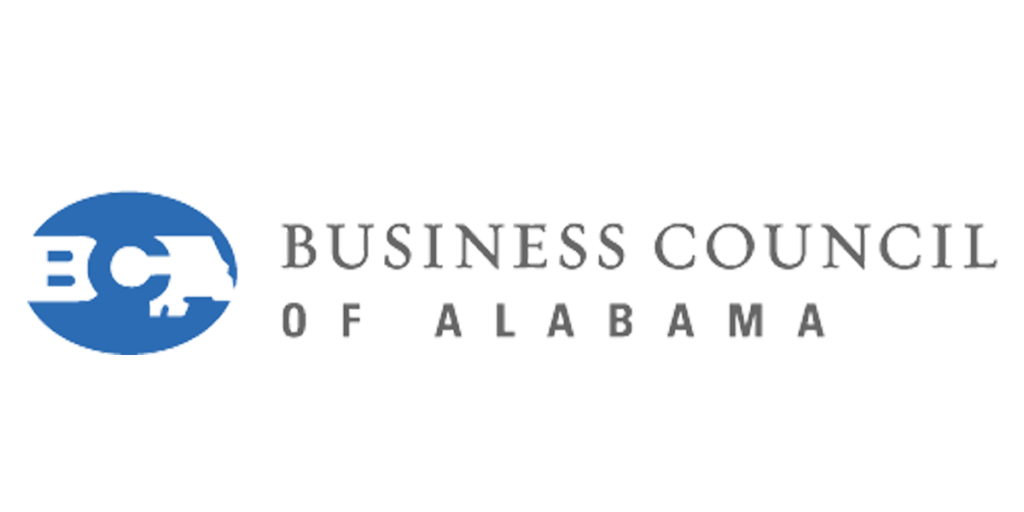
The Business Council of Alabama (BCA) on Wednesday praised Governor Kay Ivey’s newly unveiled plan to raise the state’s gas tax 10-cents to pay for infrastructure improvements. Dubbed, the Rebuild Alabama Infrastructure Plan, the plan will provide additional funding to enhance and improve Alabama’s transportation system at both the state and local levels. “The road to our future must be paved,” said BCA President and CEO Katie Boyd Britt. “Alabama’s transportation system is the backbone of the state’s economy and is crucial to our economic growth, and I commend Governor Ivey for making this a priority of her Administration.” “Alabama’s drivers are more likely to be killed in a traffic accident in Alabama than 44 other states. Last year, 282 people lost their lives in Alabama because of our road conditions,” Britt added. “Alabama’s current infrastructure challenges create a serious safety concern for all those who travel our roadways while also hindering job creation and eroding our businesses’ bottom lines. An investment in our roads and bridges is an investment in the safety and quality of life of all Alabamians.” “Economic development and infrastructure go hand in hand. We are on an unsustainable course and can no longer afford to do nothing, and I urge the legislature to pass the governor’s package,” Britt concluded. The BCA has produced a fact sheet that outlines their belief in the for need for an investment in our state’s infrastructure system. “Alabama must be competitive with our sister southeastern states, many of which have already addressed this issue,” said Jim Page, the chairman of the Alliance for Alabama’s Infrastructure, a grassroots advocacy coalition focused on fixing Alabama’s infrastructure crisis. “It’s imperative in the 2019 legislative session that we finally address this issue for the first time since 1992.”
Kay Ivey to announce infrastructure plan, expected gas tax hike
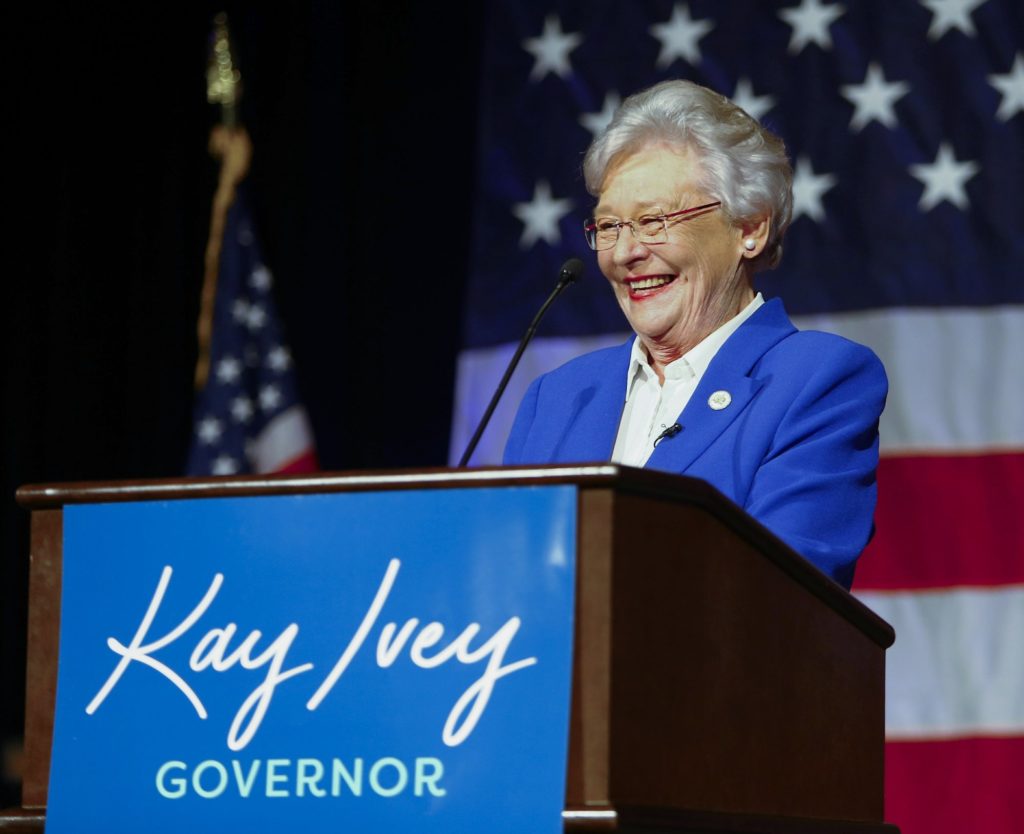
With just a week to go before the 2019 Legislative session begins, Gov. Kay Ivey is scheduled to announce her plan to improve Alabama’s infrastructure system on Wednesday, which is expected to include a gas tax hike. Ivey will hold a press conference on County Road 17 in Maplesville, Ala. to discuss the details of her plan. Many presume a bill on the gas tax and to fund infrastructure improvements will be a key component of her plan. “I support the legislature’s bold move to invest in infrastructure upgrades and public safety. Road and bridges are an essential service of government, and investing in them will bring more jobs and businesses to our state, creating opportunities for everyone,” Ivey said in 2017 in support of a then-proposed gas tax adjustment. The gas tax was last raised in 1992.
Ahead of gas tax debate, API proffers three guiding imperatives to Alabama policymakers

With the 2019 Legislative Session less than a month away, and it’s no secret the sessions is expected to be dominated by discussions of how to fund Alabama’s road and infrastructure needs. One of the big proposals expected to considered this session is the gas tax, which is why on Monday the state’s right-leaning Alabama Policy Institute (API) released it’s tax position paper on said tax. In the position paper, API lays out their position on the gas tax by first asserting their support for increased investment in Alabama’s infrastructure. US Supreme Court Justice Oliver Wendell Holmes famously said that “taxes are what we pay for a civilized society.” The Alabama Policy Institute freely acknowledges that infrastructure is neither free nor is it unwanted. No rational voice would debate the need for a strong system of roads, bridges, ports and e-commerce. API also acknowledges with candor that there is no question that the cost of maintenance and construction of vital infrastructure has increased over time while Alabama’s chief source of state generated infrastructure revenue, the gas tax, has not increased one cent since 1992. But none of these candid admissions should be construed to mean that API suggests that conservatives should propose or accept a bare-bones tax increase as the only solution. The current governing majority must consider how best to govern in this revenue-depleted environment in such a way as to inspire confidence in their constituent consumers. API suggests that such confidence can be generated by considering certain conservative imperatives in the gas tax debate. The three imperatives for conservative policymakers API is referencing are: Taxes should always be the last resort: API believes that government should always look first to the goal of realigning the existing balance between current expenditures and resources before asking for taxpayers to sacrifice more. Taxes should never be raised without reforms: API believes that government should always strive to better its processes, increase its transparency, and mitigate waste. No tax should ever be raised without an equal decrease in other taxes: API acknowledges that government cannot provide essential services without the revenue to pay for those services. At the same time, however, there is a responsibility to be measured in the collection of revenue from the public. To further display their imperatives in action, API proffered two examples of “revenue enhancing legislation,” which follow them: Proposed bill #1 Would address reform measures that API deems “desperately needed” to stop a siphoning of funds from the current Road and Bridge Fund. Stop the practice of rebating gas taxes to organizations that use Alabama roads and bridges. Legislatively create an offset to the taxpayers by reducing the state portion of the existing grocery tax. Alabama is one of only seven states nationwide that fully taxes grocery sales, and one of only twelve that taxes groceries at any level. Allow for the general public to see where and how infrastructure dollars are spent. The Joint Legislative Transportation Committee should be given the ability to review and approve 5-10 year infrastructure plans that are set by well-reasoned criteria. Proposed bill #2 According to API, bill number two “represents the long game in infrastructure funding.” “The public should made aware of the little known fact that Alabama has a trust fund that currently holds in excess of $3.2 billion generated by offshore oil and gas exploration,” explained API. “The Alabama Trust Fund belongs to no one else but the people of this state.” Should be an immediate lobbying of the Trump administration to extend the State’s offshore boundaries by an additional 5-10 miles. The extended maritime limits would create additional revenues from oil and gas. Revenues from extended limits could then be appropriated, by a vote of the citizens of this State in the form of a constitutional amendment, to fund infrastructure. “It is possible to be a conservative and still debate an increase in taxes,” API explained.
Steve Flowers: Infrastructure program should be priority 1
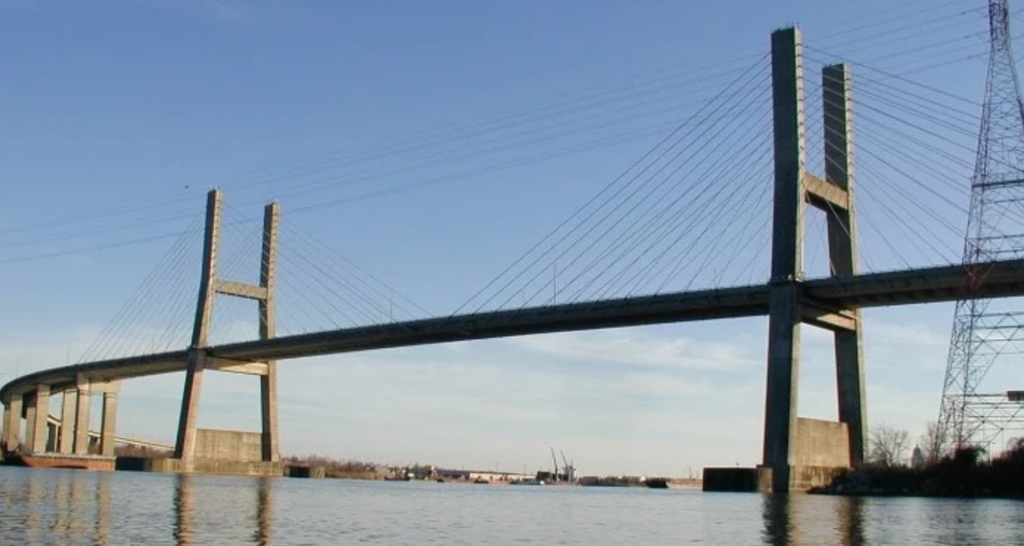
As the new quadrennium crests in Alabama government, everybody looks toward a new beginning. There is a new fresh four years ahead for the newly elected leaders. They are overwhelmingly Republican. The Governor is Republican and all of the accompanying constitutional officeholders are members of the GOP. More importantly, the State Legislature, both the House and the Senate are Republicans. In fact, over two-thirds of each chamber are Republican. It is a supermajority. The cards are lining up for these leaders to leave a legacy. That legacy could and should be to rebuild Alabama’s roads and bridges. The optimum word is infrastructure. Folks know that it is time. Alabamians see the needs everyday as they drive to work. The staunchest and most conservative people I know throughout the state tell me, adamantly, that they are flat ready to pay more in gasoline tax to fix their roads. The hue and cry arises from rural folks whose roads are impassable from large potholes. Birmingham’s roads are deplorable. Suburban commuters who have to travel highway 280 in Jefferson and Shelby counties are exasperated. Indeed, commuters in the state from all of our largest metro areas are acutely aware of the horrendous log jams they experience every day. The country folks have figured out that it would be cheaper to pay more for gasoline than it is to pay for having their frontends aligned and tires balanced every few weeks from hitting holes in their roads. A good many of the rural bridges in the state have been condemned and are hazardous for heavy trucks and school buses to travel. The Alabama Department of Transportation (ALDOT) has an unprecedented number of unmet repairs and expansions. A spokesman for ALDOT says there are $10 billion of identified capacity projects and needs. Some big-ticket items on the ALDOT list include a new Interstate 10 and bridge and Bayway widening project in Mobile and Baldwin Counties, the completion of the Birmingham northern beltline, the Montgomery Outer Loop, and additional lanes along the interstate in Huntsville. Speaking of Huntsville, they are poised to be one of the fastest growing areas of the entire nation over the next decade. It is imperative that their infrastructure needs are met to keep pace with their expansion. Toyota-Mazda is set to build their largest plant in the Huntsville-Madison metro area. They were assured that roads would be built to accommodate their location and expansion. Alabama, like most states, relies on gasoline taxes to pay for their roads and bridges. It has been 26 years since our gas tax was raised. The last time that Alabama had an increase in our fuel tax was 1992. That state increase was just ahead of the last federal gas tax increase enacted by Congress. President Donald Trump pledged while running and again after his election in 2016 to advance a massive infrastructure program, the largest in U.S. history. He signaled support for increasing the federal gasoline tax to pay for this American infrastructure initiative. This rebuilding of America infrastructure is one of the bipartisan issues that both Democrats and Republicans are espousing. It is a certainty that states will have to come up with matching dollars to get the federal money. Indeed, 28 states have raised or reformed their taxes since 2013 in anticipation of a federal tax increase which they will have to match. This is the one issue in which both parties in Washington can come to an agreement. We in Alabama are not ahead of the curve, but we are poised to maybe come to grips with this issue. A gasoline tax increase to fund infrastructure needs will be the paramount issue of 2019. My guess is that it will happen this year. Governor Kay Ivey, shortly after taking office, said she “supported an increase in the state gasoline tax to fix state roadways.” House Speaker, Mac McCutcheon, of Huntsville, has trumpeted the need for a road program for years. Most of his Republican colleagues in the House ran for reelection without having to take a vow that they would not raise any new revenue or taxes. The stars are aligned for Alabama to act. The time is now. The timing is good. We will probably never have the Chairman of the United States Senate Appropriations Committee as our Senior Senator ever again. Senator Richard Shelby will make sure that we get our fair share of the federal money. However, we must have the basic revenue to draw down the federal funds. See you next week. ••• Steve Flowers is Alabama’s leading political columnist. His weekly column appears in more than60 Alabama newspapers. He served 16 years in the state legislature. Steve may be reached at www.steveflowers.us.
Understanding Mobile County local amendment 1: pay-as-you-go infrastructure improvements

When Alabamians get to the polls on Tuesday, Nov. 6, voters in some counties will see local amendments on the ballot. Here’s a look at what residents of Mobile County need to know about a local amendment they’ll see on the ballot: On the ballot: Shall Mobile County in the State of Alabama be authorized to issue from time to time and in one or more series its Pay-As-You-Go Road, Bridge and Drainage Facilities Bonds, not exceeding $60,000,000 in principal amount, for the purpose of raising funds for the construction and improvement, or either, of hard surfaced roads, hard surfaced bridges, and surface water drainage facilities, or any thereof in the county, which bonds shall bear interest at a rate or rates to be fixed when they are sold, not exceeding twelve percent (12%) per annum, payable semiannually until their respective maturities, and shall mature and become payable on December 1 in the aggregate principal amount of $6,000,000 in each of the years 2022 through 2031, and shall the said county be authorized to continue to levy annually a special tax, on all taxable property in the county, at a rate not exceeding six and one-half mills on each dollar of the assessed valuation of such property, for the purpose of paying at their respective maturities the principal of and interest on the said bonds and all other bonds at any time outstanding which may be payable out of or constitute a charge on the said special tax, all pursuant to the provisions of Amendment 18, as amended and modified, to the Constitution of Alabama? Vote: For/Against said proposed Mobile County Pay-As-You-Go Road, Bridge and Drainage Facilities bonds and the said proposed continued levy of the said special tax What it means: If passed, the amendment will allow Pay-As-You-Go work to be completed within the City of Mobile including the : Improvement of Zeigler Blvd. to allow traffic to increase to 20,000 daily moving from the rural and suburban parts of Mobile into the downtown area. Widening of McGregor Ave. and constructing a new roundabout at Dauphin St. Resurfacing Airport Blvd. from McGregor Ave. eastward to Western American Circle Resurfacing of Hillcrest Rd. from Cottage Hill Rd. northward to Grelot Rd. In the county area, projects include: Extending the widening of Zeigler Blvd. from Schillinger Rd. to Tanner Williams Rd. Widening McDonald Rd. from I-10 to Old Pascagoula Rd. Building a new road to connect McDonald Rd. at Old Pascagoula Rd. to McFarland Rd. at Three Notch-Kroner Rd. This new road will allow traffic traveling down Snow Rd. and McFarland Rd. to have direct access to I-10. Resurfacing Three Notch-Kroner Rd. from Dawes Rd. to McDonald Rd. Resurfacing Padgett Switch Rd. from Half Mile Rd. to Hwy. 90. In total 67.9 miles would be added or improved. Sample ballot Click out the Mobile County sample ballot: Front side | Back side Don’t live in Mobile County? Find your county’s sample ballot here.
Report says 1,200 bridges in Alabama are structurally deficient
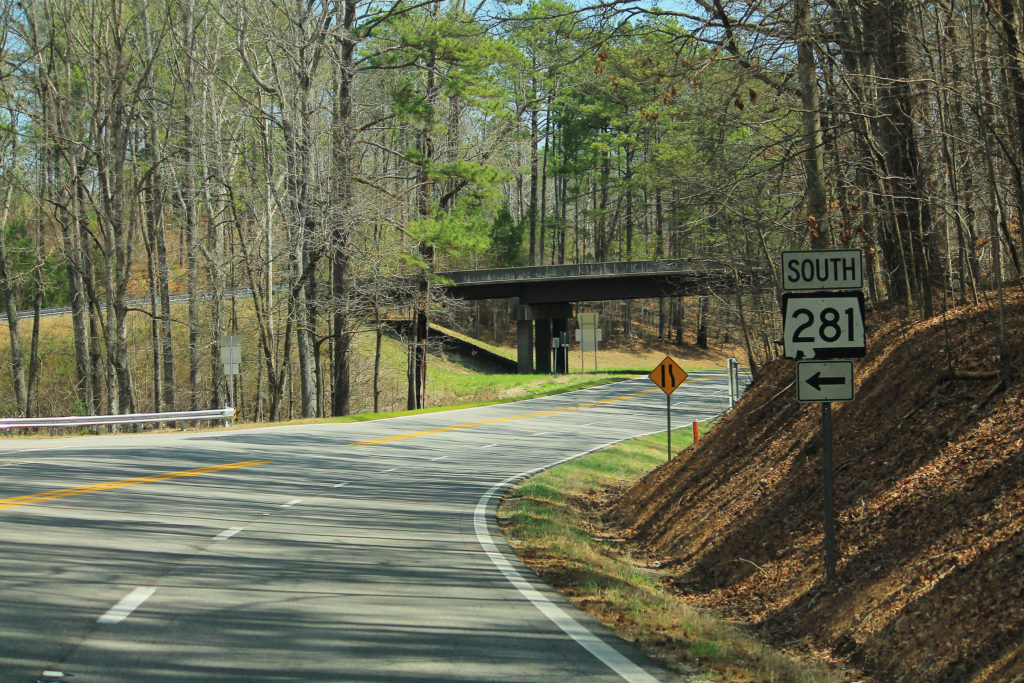
The American Road and Transportation Builders Association released a report earlier this year on deficient bridges in the United States, saying 1,200 bridges in Alabama are structurally deficient. According to the report: there are 16,128 bridges in the state, and 1,200 of those bridges (7.4 percent) are structurally deficient. Alabama ranked number 17 overall in the U.S. Some experts believe Alabama’s infrastructure problems might cause harm to the state’s economic development efforts, and several of the top-tier state office candidates have commented on how badly the state needs an infrastructure boost. “Portions of our interstate are simply uncomfortable to drive upon, various bridges in every portion of the state are too dangerous for use, and, as someone who travels a great deal through rural Alabama, I can attest that the roads often feel like driving on broken pie crust,” Guntersville-Republican, State Rep. and Lieutenant Governor candidate Will Ainsworth wrote. Shashi Nambisan, executive director of the Alabama Transportation Institute at the University of Alabama, told the Alabama Newscenter, that statistics show the state’s infrastructure needs action now. “Over the last 25 years, there has been a tremendous increase in population, about 20 percent, (an) increase in the number of registered vehicles across the state and, most importantly, the vehicle miles driven across the state,” Nambisan said. “At the same time, we have had just a nominal 14 percent increase in the capacity, the number of new lanes or new lane miles that have been added.” Some of the most traveled bridges in the state in need of repairs are in the Jefferson and Mobile counties, two of the most populated counties in the state. Other key findings of the report were: 20 structurally deficient bridges in the state are on the Interstate Highway System. Over the last five years, bridge investment has accounted for 26.3 percent of highway and bridge contract awards in the state, compared to an average of 28.9 percent nationwide.2 Over the last 10 years, 872 new bridges have been constructed in the state; 90 have undergone major reconstruction. The state has identified needed repairs on 8,572 bridges; which the state estimates will cost $15.3 billion.
Rauf Bolden: Solving the traffic problem in Orange Beach
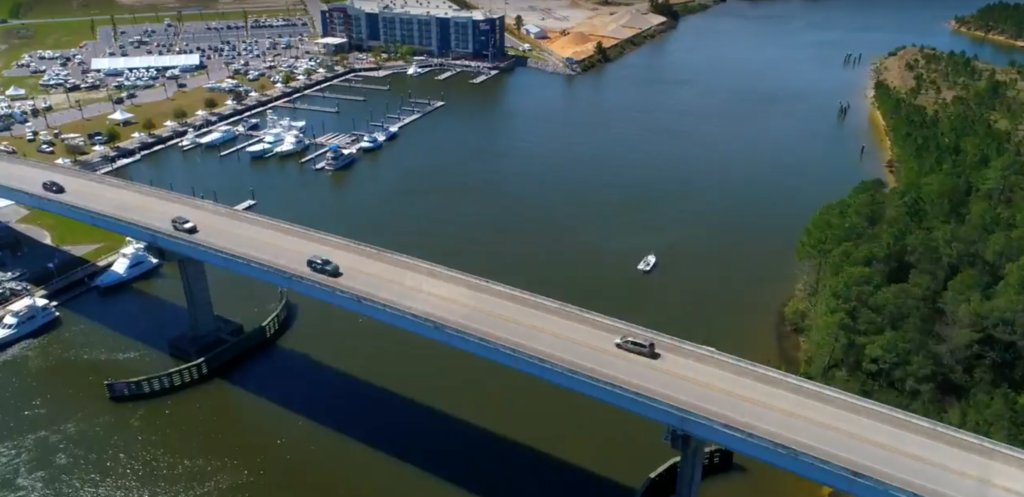
Roads are the lifeblood of a community, moving prosperity, maintaining economic flow. The ones in Orange Beach do not perform well, especially during the peak-tourist season. We must find a better way to move traffic or we must reduce development, because the countdown is ticking for a summertime solution. When government pours money into local economies jobs are created, according to a stimulus theory espoused by John Maynard Keynes. In Orange Beach development has outpaced infrastructure, requiring government to come in. They are investing millions-of-dollars in the local economy, re-balancing the development-to-infrastructure equation, spurring economic growth, and alleviating congestion on our roads. Visitors do not care if it’s the State’s road, it passes through our town and City Council must answer for what is perceived to be poor planning on the part of elected officials. In recent memory, traffic complaints were innumerable, prompting Mayor Tony Kennon to put the Governor’s telephone number on the electronic sign in front of City Hall, telling people to call Montgomery. “All I know is we need a road through the State Park,” said Mayor Kennon in an interview with John Mullen of the Lagniappe, putting commerce ahead of environmental impact, supporting development of the natural resource the State Park was created to protect. The Gulf Restoration Project lawsuit settlement ($53 Million) prohibits building a road across the State Park for the next 20 years, according to the Lagniappe. Mayor Kennon is frustrated that officials from Orange Beach were not consulted prior to the settlement, acknowledging the settlement virtually erased any chance to build a direct route from the Beach Express to the Beach Road for a generation. “That was part of the settlement that was able to get the lawsuit settled and us moving forward,” said Chris Blankenship, Commissioner of Alabama’s Department of Conservation and Natural Resources’ (DCNR). We must plan an alternative route, going east from the Beach Express, skirting around the State Park. The city disavows any responsibility for traffic problems on State roads, saying it is not a local issue but one for the State of Alabama, arguing the revenue sent by the beach community is supporting their General Fund, implying the State should repatriate dollars to solve the beach’s traffic problem. At some point the beach community will own up to the fact that locally-approved developments fueled this expansion, causing traffic congestion. Once partial guilt is accepted, solving the traffic issue becomes a partnership with the State, letting them provide input on developments with the city supply feedback on infrastructure. Both sides discussing additional-developer fees to pay for road improvements, understanding that fee increases for the developers are not going to go down well. Funding is always a key issue in Orange Beach because we treasure our reserves. The new school being built on Canal Road is a good example of the thought process, getting someone else to pony-up $14.7 million for our children’s school was a stroke of negotiated genius, but now that everyone in the county has seen the jet-sweep, evaluating different strategic options is our only choice. Sain Associates wrote Orange Beach’s traffic counts. For a typical summer weekend we had 1796 cars per hour come down the Foley Beach Express, turning onto Canal Road (SR-180). On the Beach Road we had 2436 vehicles per hour down SR-182, according to documents on the city’s old website. Obviously the major holidays like Memorial Day, Independence Day and Labor Day generate more traffic, but you get the idea. Development has outgrown capacity, tarnishing Orange Beach’s image. For the best possible traffic flow, making all the arteries five lanes, matching the capacities on every passageway is the common-sense approach. Finding the funds to pay for it is easy, but whose funds will be tapped is another question. Arguing strongly against a “free bridge” for Orange Beach, because it only benefits a few people in the State is espoused by a couple of political groups. “Ending the push for a $30 million Government Bridge to the Gulf Coast and allowing a public-private partnership to solve that problem would be a great place to start. As such, there is no justification for shaking more money out of Alabama families and businesses. Alabama’s transportation woes can be solved without a net tax increase, encouraging public-private partners rather than competing with them,” said Grover Norquist, President of Americans for Tax Reform, a non-profit taxpayer advocacy group, and Marty Connors, Chairman of the Alabama Center Right Coalition. Mayor Kennon told Fox10 News, “You can’t stop the growth. It’s coming whether you like it or not.” Are the constituents comfortable, knowing their City Council has an insatiable appetite for big developments and the dollars they bring? In the playbook, Orange Beach officials have eaten up a lot of clock with Town Halls, inviting Montgomery to show its hand, promising a bridge across Wolf Bay to County Road 20, promising a bridge to the west of the Beach Express, promising five lanes down Canal Road, giving residents hope that the traffic nightmare will soon be over. Not so fast. Environmentalists, Americans for Tax Reform, and Alabama Center Right Coalition will certainly file separate actions in Federal Court, moving to impede the proposed bridges, stating various ideological reasons, possibly taking years to settle. I suggest an unpopular approach, studying the consequences of local re-zoning, putting a moratorium on development until Council can determine what level of fees are right for infrastructure compensation, leveraging the developers’ purse versus the City’s ability to assess premium fees for ambitious projects. We must find a better way to move traffic or we must reduce development, because the countdown is ticking for a summertime solution. ••• Rauf Bolden is retired IT Director at the City of Orange Beach, working as an IT & Web Consultant on the Beach Road. He can be reached at: publisher@velvetillusion.com.

